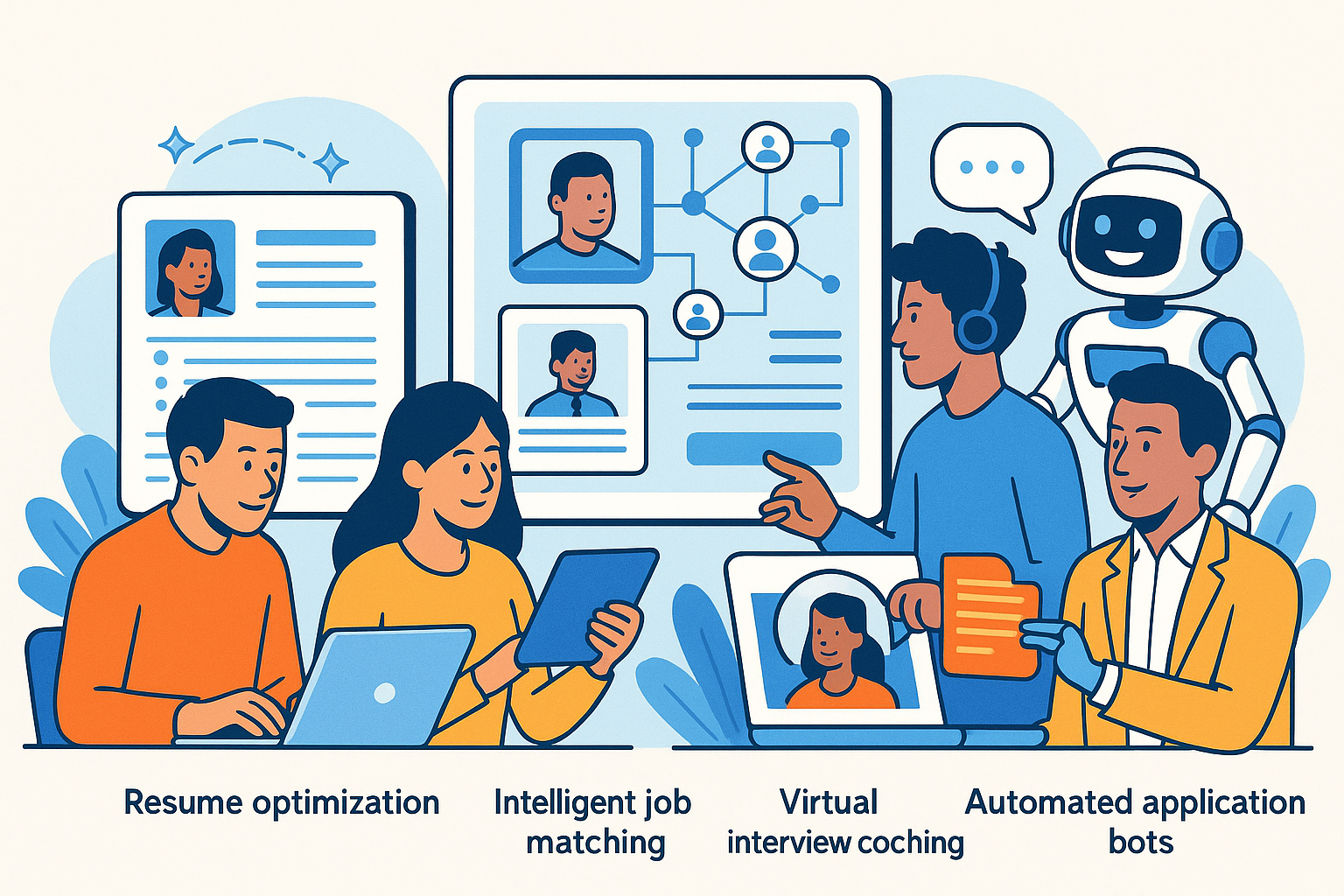AI in Job Search: The Game-Changer Candidates Need

From Resume Searcher to Strategic Ally
Recruiting used to feel like a bit of a mystery — piles of resumes, endless phone calls, countless interviews, and still that nagging feeling you’re missing the perfect candidate. But over the last couple of years, artificial intelligence — yes, the very thing some love to blame for “taking over the world” — has quietly become my go-to assistant. Not just any assistant, but a true ally who works with people, not instead of them.
What impresses me most about AI in recruiting? It’s not about replacing HR, but about untangling massive knots of information that used to mean hours of manual sifting. I’ve lost count of how many top talents slipped through simply because someone got tired or overlooked details. Now, machine learning systems scan tens of thousands of resumes in seconds, spotting not just keywords but patterns of experience that no simple filter could catch.
And that’s just the start. Advanced AI tools can evaluate cultural fit — not just what a candidate can do, but who they are. This is no longer about raw data but a subtle dance with info: communication style, core values, even thinking patterns, all inferred from texts and behavioral assessments.
Another game-changer? Automating routine communications. Forget sending hundreds of identical “please join us for an interview” emails. AI chatbots handle this with human warmth and precision, freeing recruiters to focus on what matters most — genuine conversations and deep candidate evaluation.
I’m not here to romanticize AI — it’s not perfect, and no algorithm replaces intuition and experience. But when you realize it lifts the burden of drudgery and helps you see candidates more broadly, it feels like gaining a strategic teammate, not just a tool.
And if you think AI is only for giant corporations with millions of openings, from experience I can say: these technologies are already accessible for small businesses. The key is knowing how to implement them in a way that serves people, not the other way around.
At the end of the day, AI in recruiting isn’t about soulless automation. It’s about amplifying human potential — the ability to see candidates more deeply and move faster, focusing on what truly counts: growing your team and company. And honestly, watching technology make the process more humane? That’s a small but sweet victory.
How about you — have you implemented AI in hiring yet, or still just “testing the waters”? I’m curious about your experience and what challenges you’ve faced.
How AI Improves the Job Search
AI-powered tools have become essential, offering features such as:
- Resume and Cover Letter Optimization: Platforms like Kickresume and Rezi automatically adjust resumes to beat Applicant Tracking Systems (ATS), greatly improving candidates' chances.
- Intelligent Job Matching: LinkedIn and China's BOSS Zhipin use AI algorithms to connect candidates with suitable roles, saving hours of manual searching.
- AI-Assisted Interviews: Tools like Final Round AI and Yoodli simulate interviews, analyze speech, and give real-time feedback, boosting candidate confidence.
ChatGPT: The Personal Job Search Assistant
ChatGPT and similar generative AI models have become popular job-hunting allies, helping candidates tailor resumes, draft personalized cover letters, and practice mock interviews. Such tools don't replace human insight but significantly speed up the process of personalizing and refining job applications.
The Rise of Job Application Bots
AI agents like LazyApply and Sonara automate applying to jobs at scale—filling forms, sending out resumes overnight, and even managing the initial responses. Although automation greatly increases the volume of applications, this comes with a risk: recruiters can become overwhelmed, and accuracy may suffer. Hybrid services with human oversight, such as Massive, offer more balanced solutions.
Global Adoption and Differences
AI adoption in job search varies significantly across regions:
- USA: Leading the charge with extensive adoption and robust investment, driven by platforms like LinkedIn and startups like Teal and Jobscan.
- Europe (Germany): AI adoption is more cautious due to privacy concerns and strict regulation (e.g., GDPR and the upcoming EU AI Act).
- China: Dominated by advanced local platforms like Zhaopin and BOSS Zhipin, AI is integral, helping millions of job seekers daily.
- India: High AI adoption due to vast competition and multilingual requirements; Indian job seekers have widely embraced AI tools.
Benefits and Challenges
The benefits are clear—efficiency, personalization, better job fit, and accessibility to career advice. But risks remain, notably over-reliance on automation, loss of personal authenticity, and ethical concerns, including potential biases in AI systems.
Conclusion
AI in job search is more than just a trend—it's transforming the very fabric of how candidates approach the job market globally. As these technologies evolve, balancing automated convenience with genuine human insight will become key to successful, meaningful employment outcomes.
Ready to streamline your business processes with AI?
📩 Get in touch for a consultation